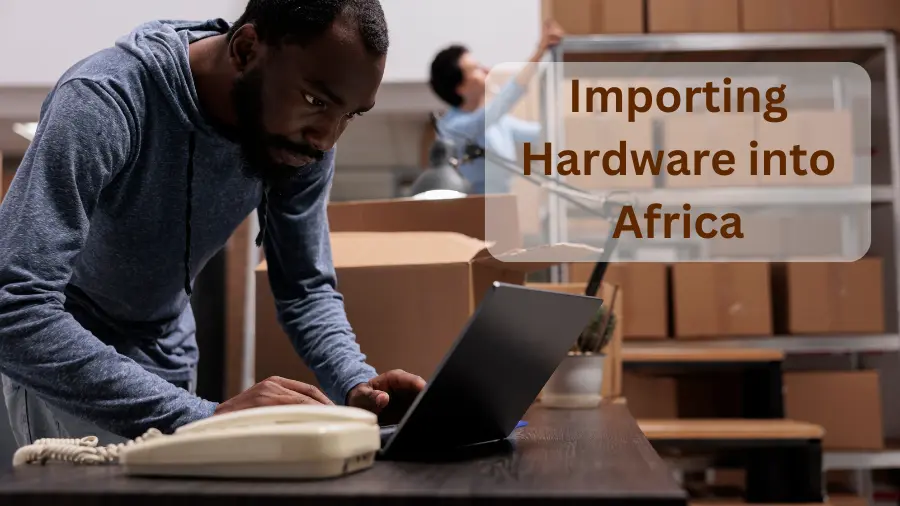Importing hardware into Africa offers tremendous opportunities — but success depends on navigating a complex and fragmented regulatory landscape. Each country enforces its own rules for type approval, Certificates of Conformity (CoC), customs documentation, and import permits.
Without careful preparation, businesses risk shipment delays, penalties, or outright rejection at customs. This guide provides a clear framework to help you stay compliant, reduce risks, and streamline your hardware imports across Africa.
1. Africa Type Approval
Before any ICT or telecom hardware enters an African market, it must pass type approval — proof that the equipment complies with national safety and technical standards.
Across Africa, each country has its own regulator and unique process. Typically, type approval involves:
-
Independent testing of devices to confirm safety and performance.
-
Local representation — only a registered in-country entity or Importer of Record can usually apply.
-
Official certification before customs clearance is allowed.
For detailed regulator examples (Nigeria’s NCC, Kenya’s CAK, Egypt’s NTRA, and South Africa’s ICASA), see our country-specific Importer of Record services.
2. Certificates of Conformity (CoC)
A Certificate of Conformity is mandatory in many African markets to prove that imported hardware meets required safety and quality standards. These certificates are typically issued by accredited third parties.
Examples of CoC Systems in Africa:
-
Nigeria: SONCAP (Standards Organisation of Nigeria Conformity Assessment Program).
-
Kenya: PVoC (Pre-Export Verification of Conformity) via KEBS.
-
Morocco: Certification through IMANOR (Institut Marocain de Normalisation).
3. Customs Documentation Essentials
Accurate customs documentation is the backbone of smooth importation. Any mismatch or missing paperwork can trigger penalties, fines, or shipment holds.
Core Documents Required Across Africa:
-
Commercial Invoice – full description, HS codes, value, and terms.
-
Packing List – dimensions, weight, and packaging details.
-
Bill of Lading / Airway Bill – proof of shipment.
-
Certificate of Conformity (CoC).
-
Insurance Certificate (for sea freight).
-
Import Permits (for restricted goods).
Note: Tariff codes differ across customs unions (e.g., ECOWAS, EAC, SADC). Always confirm HS codes with local customs to avoid misclassification fines.
4. Import Permits and Licensing
Certain categories of hardware require special permits or licenses prior to import.
-
Restricted Items: Used/refurbished ICT equipment, encryption devices, and satellite hardware often need permits.
-
Penalties: Importing restricted products without valid permits can lead to shipment seizure or heavy fines.
Solution: Work with a licensed Importer of Record (IOR) who can secure permits and act as your legal importer.
5. Regulatory Variability Across Africa
One of the biggest challenges is the diversity of rules. Unlike the EU or the U.S., Africa does not have a single harmonized import system.
-
Country-Specific Standards: Each market enforces unique approval processes and documentation requirements.
-
Non-Tariff Barriers: Quotas, local-content requirements, and mandatory partnerships with domestic firms.
-
Customs Union Complexities: Overlaps in ECOWAS, EAC, and SADC create inconsistencies that importers must navigate.
6. Infrastructure & Logistics Challenges
Even after securing approvals, logistics bottlenecks can delay shipments:
-
Port Congestion: Major hubs like Lagos (Nigeria), Mombasa (Kenya), and Dar es Salaam (Tanzania) face frequent delays.
-
Transport Gaps: Weak road and rail networks raise inland distribution costs.
-
Customs Delays: Manual clearance processes slow down supply chains in some regions.
7. Compliance with Local Standards
Beyond import approvals, hardware must align with domestic safety, quality, and data rules:
-
Safety & Quality Testing: Local authorities (KEBS, SON, IMANOR) may require additional certification.
-
Data Localization Laws: Countries like Nigeria and Egypt enforce rules for local hosting/storage of sensitive data, affecting IT hardware deployments.
Key Challenges Summary
| Challenge | Impact | Mitigation Strategy |
|---|---|---|
| Complex Tariff Codes | Misclassification, delays, fines | Use expert customs brokers & HS validation |
| CoC & Type Approval | Weeks of testing & certification | Start early, partner with local reps |
| Import Permits | Risk of penalties if missing | Licensed IOR secures permits |
| Country Variability | No unified system | Market-specific compliance planning |
| Infrastructure Issues | Delays & higher costs | Plan longer lead times, local logistics |
Optimize Your Hardware Imports into Africa
Africa’s hardware market is growing fast — but only businesses that master compliance can seize the opportunity.
Partner with IOR Africa to simplify the process:
-
We handle type approvals, CoCs, and restricted-goods permits.
-
We manage customs clearance and tariff code validation.
-
We ensure your shipments remain compliant across 70+ African countries.

